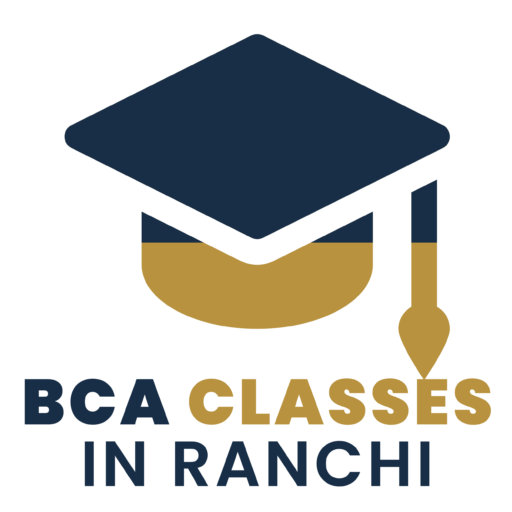Understand the Exam Format and Syllabus
Familiarity with the exam format and syllabus is crucial for students preparing for Bachelor of Computer Applications (BCA) exams. The first step is to obtain the official syllabus, which can typically be found on the respective university or institution’s website. This document outlines all the subjects covered in the curriculum and provides insights into what is expected from students. Knowing the syllabus helps candidates focus their studies on the relevant topics, ensuring that time is invested wisely.
Once students are aware of the syllabus, it is essential to recognize the types of questions that may be asked in the exams. BCA exams generally include a mix of theoretical questions, practical applications, and case studies. By reviewing past papers and sample questions, students can become acquainted with the format, such as multiple-choice questions, descriptive questions, and programming tasks. This understanding can greatly enhance a student’s confidence and performance during the actual examination.
Additionally, it is important to analyze the weightage of different topics within the syllabus. Subjects that carry more marks should be prioritized in the study plan, while less weighted topics can be allocated a proportionate amount of time. Creating a study plan that reflects this distribution allows students to allocate their study hours effectively, ensuring that they are well-prepared for each section of the BCA exams.
Incorporating break periods and revision concepts within the study timeline can bolster retention and comprehension, further aiding in exam readiness. By strategically studying the syllabus and understanding the exam structure, students can maximize their chances of achieving high scores in their BCA exams.
Effective Study Techniques and Resources
Scoring high in BCA exams requires a strategic approach to studying that enhances learning and retention. One effective study technique is active learning, which encourages students to engage with the material more deeply than traditional passive reading. Active learning strategies can include summarizing information aloud, teaching concepts to peers, and applying the learned material to real-world examples. These methods not only reinforce knowledge but also improve understanding by facilitating connections between different concepts.
Another useful technique is the use of mnemonic devices. Mnemonics are memory aids that help students recall larger concepts or lists through simple phrases or acronyms. For instance, creating a mnemonic for programming languages or software tools can make it easier to remember the key features or syntax. Incorporating these techniques into your study regime can greatly enhance memory retention, making it easier to retrieve information during examinations.
In addition to study techniques, utilizing appropriate resources is crucial for thorough preparation. Textbooks provide foundational knowledge, whereas online platforms like educational websites and forums often host discussions that bring additional insight into complex topics. Websites such as Coursera, edX, and Khan Academy offer courses tailored to BCA subjects and can be instrumental in grasping difficult concepts.
Study groups are another valuable resource. Collaborating with peers allows for the exchange of ideas and different perspectives on the subject matter, promoting a more comprehensive understanding. Furthermore, discussing topics within a group encourages accountability, ensuring that all members are motivated to keep up with their studies. By combining effective study techniques with a variety of resources, students can develop a well-rounded preparation plan that significantly enhances their performance in BCA exams.

Time Management Strategies for Study and Revision
Effective time management is a crucial factor in achieving high scores in BCA exams. Students need to adopt structured planning to optimize their study efficiency and ensure thorough revision of subjects. One of the most beneficial strategies is to create a detailed study timetable. This timetable should outline specific goals for each study session, allocating time slots for different subjects according to their difficulty and importance. A well-organized plan not only keeps students focused but also instills a sense of accomplishment as they complete each segment.
Breaking down study sessions into manageable chunks is another effective technique. This approach prevents students from feeling overwhelmed and allows for better retention of information. For instance, dedicating focused segments of 25 to 30 minutes followed by shorter breaks can enhance concentration. This method aligns well with the popular Pomodoro technique, where periods of intense study are alternated with regular breaks. By applying the Pomodoro technique, students can maintain their engagement while avoiding fatigue, which is essential for sustaining long-term productivity.
Additionally, the importance of regular breaks cannot be overstated. These intervals provide necessary respite, allowing the brain to process and consolidate information. Skipping breaks can lead to burnout, negatively impacting both motivation and memory retention. It is equally important to incorporate regular review periods into the study schedule, ensuring that previously covered material is revisited periodically. This reinforces learning and helps students retain knowledge more effectively.
Balancing study commitments with other obligations may pose challenges, but it is vital for maintaining overall well-being. Students should evaluate their schedules to prioritize their academic tasks while accommodating other responsibilities. By effectively managing their time, students can create a sustainable study routine that leads to improved performance in BCA exams.
Practice and Mock Exams: The Key to Success
Preparing for the BCA exams involves a strategic approach, and one of the most effective techniques is through consistent practice and taking mock exams. Engaging with sample papers and past exam papers allows students to familiarize themselves with the exam format, question types, and marking schemes. This not only aids in understanding the subject matter but also bolsters confidence, which is critical on the day of the examination.
To find appropriate resources for practice, students can begin by exploring their institution’s library, which often houses a collection of past exam papers. Additionally, many educational websites offer free or paid sample papers specifically tailored for BCA courses. Setting aside time for timed practice sessions is imperative, as it simulates the actual test environment. By allocating fixed durations for solving these papers, students can enhance their time management skills and decrease anxiety levels during the real examination.
Once practice sessions are completed, the focus should shift to analyzing the performance in mock exams. It is crucial to meticulously review incorrect answers to understand the underlying errors, whether they stem from conceptual misunderstandings or careless mistakes. This reflection not only assists in reinforcing knowledge but also highlights areas requiring additional attention. Creating a checklist of common mistakes can serve as a valuable tool for continuous improvement.
Conclusion
Self-evaluation is a key component in the preparation process. Students should regularly assess their progress and adapt their study strategies based on mock exam results. By setting benchmarks and gradually increasing difficulty levels in practice, students can gauge their readiness for the actual exam. This cycle of practice, evaluation, and adjustment ensures that students approach their BCA exams with preparedness and assurance, significantly enhancing their prospects of achieving high scores.
Read Our Latest Blog
How to Write Clean and Efficient Code Best Practices for Beginners
Phone Number: +91-7488456170
Email ID: abhishek@eepl.me
Our Platforms:
Digilearn Cloud
EEPL Test
Live Emancipation
Follow Us on Social Media:
Instagram – EEPL Classroom
Facebook – EEPL Classroom
Stay connected and keep learning with EEPL Classroom!








